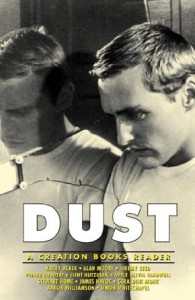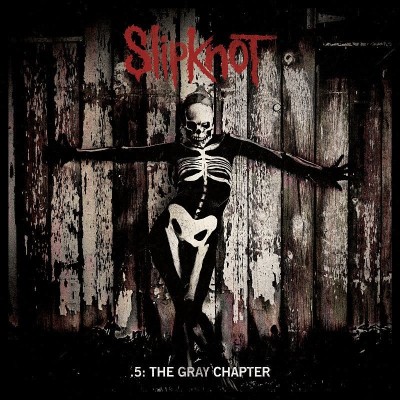
Creation is destruction waiting to happen. It’s also a publishing house. Founded in the late 80s, Creation Books started as a semi-endorsed offshoot of Creation Records and became one of Britain’s foremost underground publishers, releasing bug-eyed normie-baiting stuff of the sort that got David Britton sent to prison a few years previously under the Obscene Publications Act.
As the millennium turned, the company changed focus, and became largely a reissues house for books out of copyright (or books whose authors were incapable of disputing potential violations of such). In 2013, the company closed after 25 years in business. Lest you think this is a case of all good things coming to an end, Creation’s demise may have been accelerated by a wave of accusations of fraud and intellectual property theft against sole proprietor James Williamson. He returned fire online, protesting his innocence. It reminds me of the joke about Bill Cosby, and how it’s yet another case of his word against her word, and her word, and her word, and her word…
Dust is one of several Creation samplers/readers, containing excerpts and selections from Creation’s 1995 stable of authors circa. The publisher’s bailiwick was Gernsback-era pulp horror, French decadence, underground art films, assorted counterculture weirdness, (questionably translated) Japanese manga, and general drunken insanity. Imagine going to see Joseph Merrick at the Grand Guignol at the Bowery in Rhode Island after getting off the train at Akibahara Station: that’s the Creation experience, a kaleidoscopic drug-trip of semi-literary nonsense. If you enjoy that sort of thing, you’ll like Dust.
Kathy Acker shoves her clitdick into historical fiction with “I Become a Murderess”, retelling archetypal stories from the perspective of a rage-filled woman. Not bad. Pierre Guyotat gives us an explosion of words from Eden Eden Eden: brutal language-rending writing that picks up where Octave Mirbeau and Georges Bataille left off. Your eyes will unionise and demand overtime.
Much of the book is underground poetry from writers like Aaron Williamson, Geraldine Monk, and Jeremy Reed. A Williamson’s probably the most talented of the bunch. He’s deaf, which may have refined his aesthetic sense (vide Borges, Goya, etc.)
James Havoc (James Williamson’s pen name) contributes three pieces. “Mauve Zone” is an excerpt from his novel White Skull, detailing bloody adventures on the high seas. The other two are fragments that never have or will see completion. Adele Olivia Garcia (Williamson’s girlfriend, I’ve heard) writes a ton of stuff. She’s completely unreadable.
Alan Moore delivers “Zaman’s Hill” from the collection Yuggoth Cultures (as well as The Starry Wisdom). Good story, but short. Stewart Home contributes some unmemorable sleaze and sin – I found it difficult to tell whether he’s endorsing 90s corporate feminism or mocking it. Simon Whitechapel’s “Xerampeline” was strange but interesting. It’s like a Buñuel film, switching gears between shocking violence and erudite artistry, laving Corinthian columns in blood.
Not everything in it is great, but if you want to quickly experience a large number of Creation authors, I’d recommend Dust ahead of Starry Wisdom if you can find it cheap (although Starry Wisdom is far superior as a work of literature). And if you can’t find it cheap, well, your financial loss is yet another way of getting the Creation Books experience.
 “Sarcastrophe” is a good start. Hard to be negative about “The Negative One”. “Custer” made me giggle.
“Sarcastrophe” is a good start. Hard to be negative about “The Negative One”. “Custer” made me giggle.
On the whole, Slipknot do very little good here. They were always Insane Clown Posse with guitars, so I’m glad they’ve reverted to the fruity, unpretentious style of S/T thru to Vol 3 (or perhaps you’d prefer to hear their opinions about the Iraq war). But the songs aren’t catchy or interesting. This is a big problem.
Most of them ride predictable Machine Head-inspired groove riffs and double bass flurries – this is the type of album that make you feel like a sorcerer because you can predict exactly what will come next. Others attempt emotion and land with a splash in boredom.
“Approaching Original Gayness” (or whatever) sounds like “Before I Forget” with a sugary clean-sung chorus tacked on in a way that doesn’t make sense. Lead single “The Devil in I” starts out with an animated uptempo riff, then slows down and immediately starts spiralling the toilet. Boring idea after boring idea. I hate this song.
“Skeptic” is a tribute to bassist Paul Gray, who recently caught a bad case of dead. It has a cute chorus and not much else. “Goodbye” is long and tedious, speeding up and slowing down seemingly at random. If this song was an actual “goodbye” it would be an unwanted houseguest you’re trying to shoo out and who keeps trying to tell you his life story. Shut up already. Save it for your memoir. No, I won’t read it there, either.
At times the album barely sounds finished. The songs change from section to section haphazardly, and the tracklisting induces further whiplash. “Custer” and “The Negative One” have a nearly identical screech sample and a similar breakdown chorus…and they’re separated by just a 2 minute interlude. It’s like listening to the same song twice.
The occasional interesting riff and energetic moment keeps things moving forward and patches over the bad moments somewhat. This is their first album without Joey “needs a stepping stool to reach the drumkit” Jordison, which was a turn for the better. Judging from Scar the Martyr, he was responsible for the band’s self-serious period. But the band doesn’t exactly return to form, either, mostly because Slipknot never really had a “form” to return to.
A few entertaining moments. At least 40 minutes of narcolepsy inducing crap. All hail Slipknot.
 Wanna live dangerously? Play a PC game from 1990-1995 that has “2” in the title.
Wanna live dangerously? Play a PC game from 1990-1995 that has “2” in the title.
Companies used to have almost no idea of what a sequel to a computer game should look like. Should they be like level packs? Should they be entirely new games? The “shareware” model further complicated things – you’d have part 1, the free version, and parts 2 and 3, which you paid for. Publishers were cutting up and slicing games like lunatic sushi chefs, and “sequel” could mean absolutely anything.
Doom 2 was part of the problem. It has 32 new levels, one new weapon, and a few new enemies. Do you call that a sequel? I call it a glorified level pack. Some accountancy particulars set Doom 2 apart from the original (chiefly the fact that it was sold in stores rather than through mail-order), but so what? Imagine if Street Fighter II was Street Fighter I with a new character and some new backgrounds. You’d call shenanigans.
The new weapon is the super shotgun. It’s very satisfying to clear a room of zombies in one blast, but it disrupts the balance of the game. It’s just too effective – you never again use the regular shotgun, so why still have it in the game? (Yes, the shotgun has a tighter spread and is better for long-range fighting, but the chaingun’s better in that category).
The new enemies are a little mixed. The pain elementals and revenants are just tedious and annoying, no fun to fight. The chaingun zombies are neat. The arch-vile is the most inspired creation: a “healer” that can revive dead enemies. All the old enemies are back, including a fair few cyberdemons. At one point you have to face a cyberdemon and mastermind at the same time (the battle becomes anticlimactic when you realise you can trick them into killing each other).
The new levels are the meat of the game. Most of them are either designed by Romero or Peterson. Romero’s levels are aesthetically beautiful, and actually evoke the feeling that you’re in hell. Peterson’s are ugly, slapdash, and gimmicky. The contrasting approach to level design gives the game a bipolar feel – Romero actually gets what Doom’s about (bringing the atmosphere of a Cronenberg film to your computer screen), while Peterson is intent on dragging id Software back to the arcades.
There’s not much to say about Doom 2. If you liked the original game, this has more of the same. But it doesn’t push the envelope. The envelope remains super-glued to the table. If you’re new to the series, you might as well start with Doom 2. Once you have the super shotgun, it’s awfully hard to play a game without it.
But normally the genre-defining classics and the cheap cash-ins are made by different people. Who would have thought that in this case they’d be coming from the same studio?



